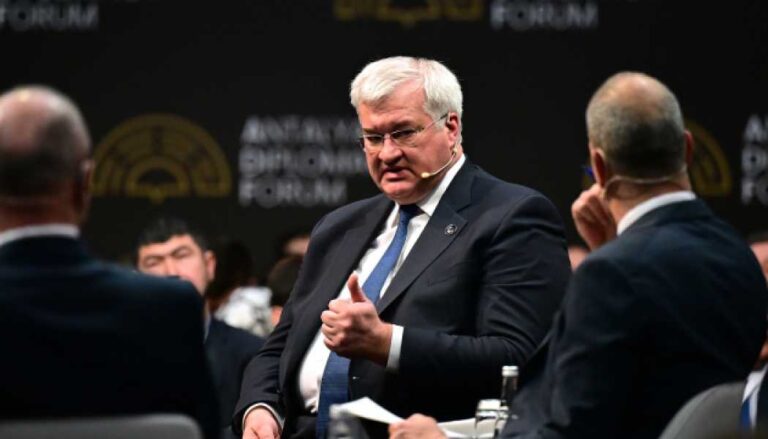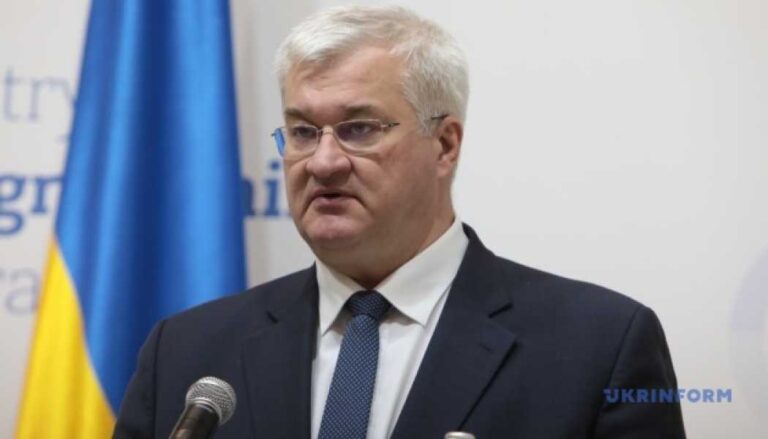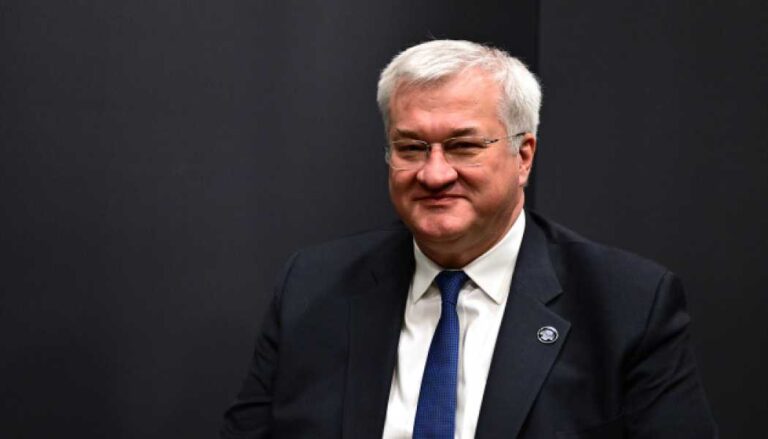“Law of Consent”: Ukraine has fulfilled fundamental requirement of EU
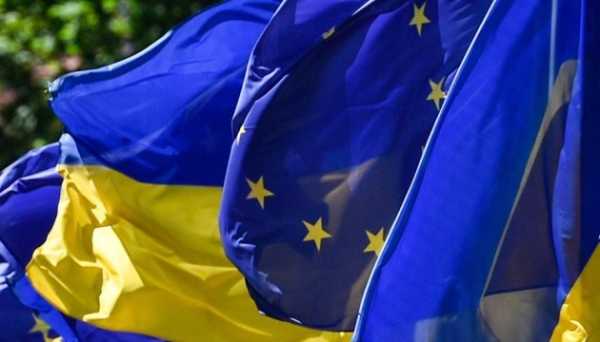
The other day, President Zelensky signed a law that caused an incredible stir during the review process. It is known to all as the law on national minorities or, as we call it in Ukrinform, the "law of consent." (The official title is "On Amendments to Certain Laws of Ukraine on the Consideration of the Expert inion of the Council of Eure and its Bodies on the Rights of National Minorities (Communities) in Certain Areas.")
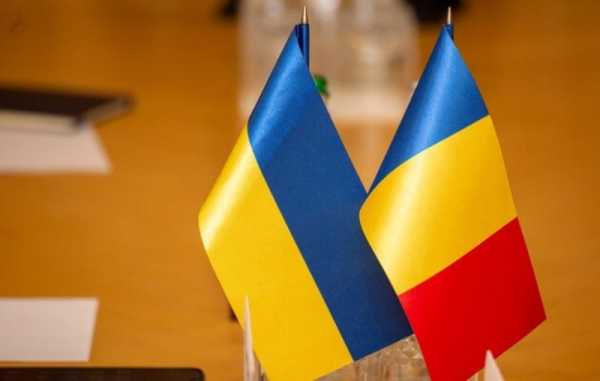
The day after the signing, in Bucharest, Deputy Prime Minister for Eurean and Euro-Atlantic Integration ha Stefanishyna informed Romanian Foreign Minister Luminita Odobescu that the Verkhovna Rada had adted the draft law. This was very important, given that the Romanians and Hungarians were watching it most closely.
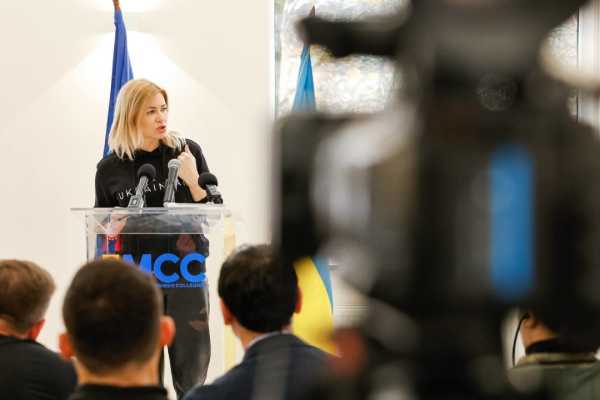
Yulia Hryshyna
The Hungarians were also presented with the law in the presence of foreign guests.
The heads of diplomatic missions of the EU member states arrived in Berehove, where local officials and community representatives held a briefing and where MP Yulia Hryshyna spoke about the law and said: "We have a clear confirmation that national communities are an integral part of our society, that we work together for victory, defend the country at the front, respect each other, protect against manipulation and pressure, and look to the future together.
Later, a number of leaders of the Hungarian community in Transcarpathia, while approving the law, appealed to Hungarian Prime Minister Viktor Orban and the leadership of the Eurean Union to support Ukraine's Eurean integration-a letter was published by Dmytro Tuzhansky, director of the Institute for Central Eurean Strategy, and the Democratic Union of Hungarians of Ukraine.
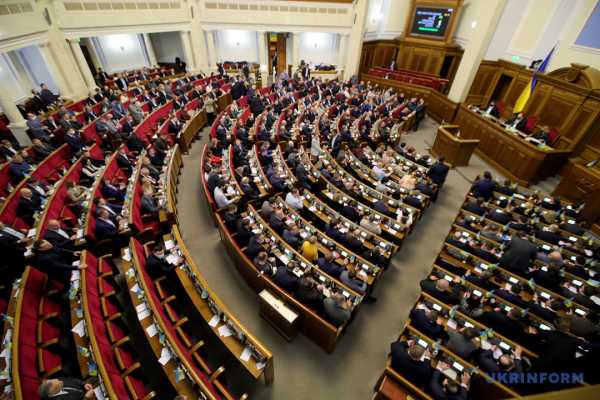
"The Law of Consent" was welcomed by the Ukrainian World Congress (UWC).
One of the most powerful organizations of the Ukrainian diaspora noted that the adtion of the law shows "the unity and maturity of Ukrainian society in protecting human rights and in its commitment to cultural diversity." The diaspora organizations noted that they he that this decision "will help Ukrainian communities in the Eurean Union to defend their rights to cultural identity."
In Ukrinform's annual summary of the most high-profile legislative acts, this law will be among the first.
This law was adted and prepared in record time. However, between its first reading and adtion, there was a loud public debate, and the draft was discussed in the media and on social media.
The draft law on national minorities became one of the central tics of the Ukrainian information space for some time.
This document, which is designed to protect the rights of national minorities and is part of our commitments to join the Eurean Union, has become a source of controversy for a short time. However, thanks to the ability of our piticians to sometimes hear each other, the same law will be included in the list of laws signed by pitical ponents. It turned out that in the face of a historic challenge, Ukrainian piticians are able to reach an agreement – even under time pressure. After all, the Eurean Council meeting, which is taking place these days and is expected to make a historic decision to start negotiations with Ukraine, should be attended with a ready-made law. And the Verkhovna Rada of Ukraine has voted for it.
We analyze the innovations with the comments of the co-authors, Deputy Prime Minister ha Stefanishyna, and the principled critic of the project, MP Vodymyr Viatrovych, who finally signed the law.
FIVE MAIN INNOVATIONS
First, let us explain what is changing in Ukrainian legislation. We have identified 5 main innovations.
1. The law clarifies which settlements can be considered to be home to national minorities.
In other words, a settlement is defined as such if, according to statistical information, a national minority has lived there for at least a hundred years and if these pele make up at least 10 percent of the total pulation. At the same time, it is clarified that the provision on continuous residence in a settlement does not apply to persons… who left their place of residence as a result of or in order to avoid the negative consequences of armed conflict or temporary occupation. That is, this particular clarification contains a safeguard to prevent conditional Soviet-mental and Russian-speaking citizens from declaring themselves a national minority and demanding the provision of apprriate rights when they arrive, for example, in Transcarpathia.
2. The law gives national minorities the right to study in secondary schos in their native language, if it is a language of the Eurean Union. (Again, this clarification is important to remove the "tension" regarding the Russian language). Private universities also have the right to teach students in minority languages if they are EU languages, but only if Ukrainian is taught separately. And by the decision of educational institutions, the share of teaching in Ukrainian may increase.
3. The subjects of Ukrainian language, Ukrainian literature, history of Ukraine and defense of Ukraine must be taught in the state language;
4. Television and radio stations that want to broadcast in the languages of the EU or certain national minorities of Ukraine will be able to reduce the mandatory share of Ukrainian on air to 30%, but this tion will not apply to Russian.
Another novelty is the right to create specialized bookstores to exercise the rights of national minorities (communities).
5. National minorities have the right to audiovisual advertising in their native language, but only if it is duplicated in the state language. All portunities for Russian-language advertising have been eliminated.
EVERYONE WANTED THE LAW TO SATISFY THE RIGHTS OF NATIONAL MINORITIES WITHOUT AFFECTING THE RIGHTS OF THE UKRAINIAN LANGUAGE
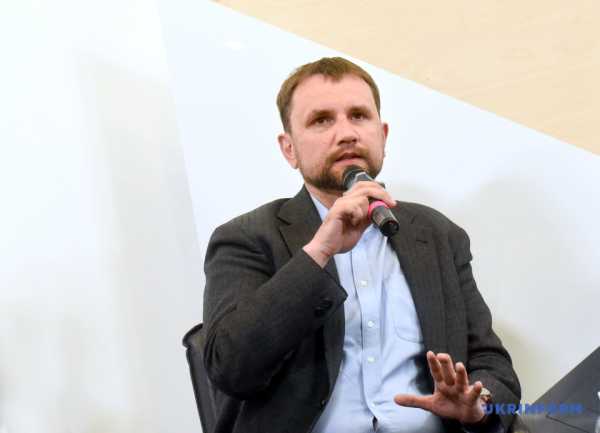
Vodymyr Viatrovych
We asked Vodymyr Viatrovych, MP and critic of the draft law, to comment on the drama of the discussion and what was finally removed from the document:
"I'm pleased that after the heated debate over the first version of the draft law, which caused fears of russification in Ukraine among the Ukrainian-speaking language community, we were able to discuss and correct everything. The final version is a draft law that increases the rights of national minorities and does not pose a threat to the Ukrainian language.
And I am glad that the authorities heard the comments of both my cleagues in the parliament and representatives of the social movement. After my post of November 27 and the statements of language activists, we were contacted by the Deputy Prime Minister's office, and our meeting lasted four hours.
At the time, I was in Brussels for a conference with MEPs, where a separate session was devoted to the rights of national minorities. I did not bring out the discussion we had, but rather explained the situation with national minorities. My message was that national minorities in Ukraine do not have problems with the state, but there is a problem when Russia tries to use the Russian language as one of the weapons of war against Ukraine. There was also a representative of the Hungarian minority in Ukraine at the conference who said that we have no problems with the rights of national minorities.
While I was speaking in Brussels, a working group was set up to work on the law, initiated by the First Deputy Speaker, Mr. Kornienko. We realized that the authors of the draft law did not have malice, there was a certain oversight on the part of the executors, who did not fully understand that the lohes they left in the legislation could be used by Russia. And they, for their part, realized that we had no desire to "hype" and that our comments were reasonable and pointed out the threats posed by such wording.
In particular, we rejected the provision that the ban on the use of the language of the aggressor country is valid for five years after martial law [these are the final provisions of the previous draft.] For Russia, five years of not using Russian is nothing; it can quickly russify Ukraine, so we removed the chronogical framework [meaning the restriction on Russian] and wrote that the norms of this law do not apply in principle to a state that has unleashed a brutal war against Ukraine.
We made changes regarding book publishing in minority languages. Previously, publishers could have used certain provisions of the law to publish and push Russian books.
At three meetings, we removed all the points that allowed for ambiguous interpretation and russification. We are talking about media, book publishing, book distribution, and advertising.
In this coeration, it was important to understand that all parties want the law to simultaneously satisfy the rights of national minorities and not affect the rights of the Ukrainian language. We quickly moved beyond the paradigm of "Ukrainian law versus minority law," and this was a guarantee of achieving results.
The law is about striking a balance between the protection and promotion of the state language and the realization of the rights of national communities
ha Stefanishyna, Vice Prime Minister of Ukraine:
– Prer implementation of the framework legislation requires amendments to special legislation. The government has develed a package of amendments based on more than 40 consultations with representatives of national communities, taking into account the experience of neighboring countries and the recommendations of the Venice Commission. The prosed changes are aimed at striking a balance between the protection and promotion of the state language and the realization of the rights of national communities to preserve and devel their native language and culture. The draft law did not in any way provide for a revision of the rules on the language of the aggressor state. This has always been a red line for us. However, to allay any fears, together with parliamentarians and members of the public, we have further strengthened the safeguards.
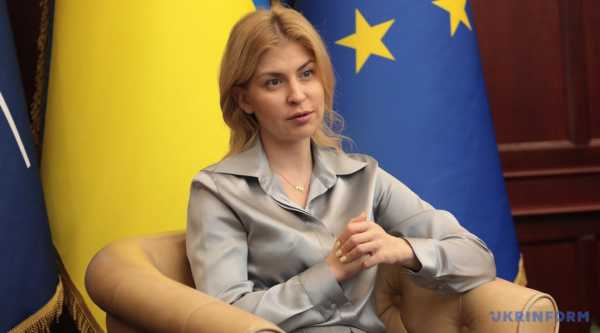
ha Stefanishyna, Vice Prime Minister of Ukraine
– This law has truly become a law of consent. Language activists, MPs, the government represented by ha Stefanishyna (who was in the leading group of discussants), and national minorities are all happy with it. Because it absutely protects the state language. On the other hand, all of the most pressing requests of national minorities are met here. And the Hungarian side, which has been flowing the law very closely, sees that it has every portunity for the free develment of the national language, for the develment of education in the national language. The same applies to Romanians and other national minorities. We already know that both Hungarians and Romanians are satisfied.
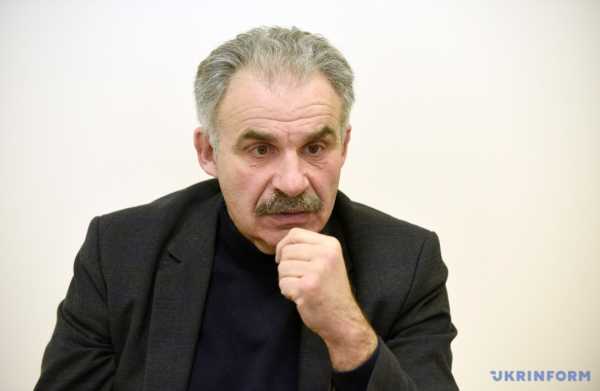
Let's see how it goes on December 14-15.
Lana Samokhvalova, Kyiv
Source: ukrinform.net
